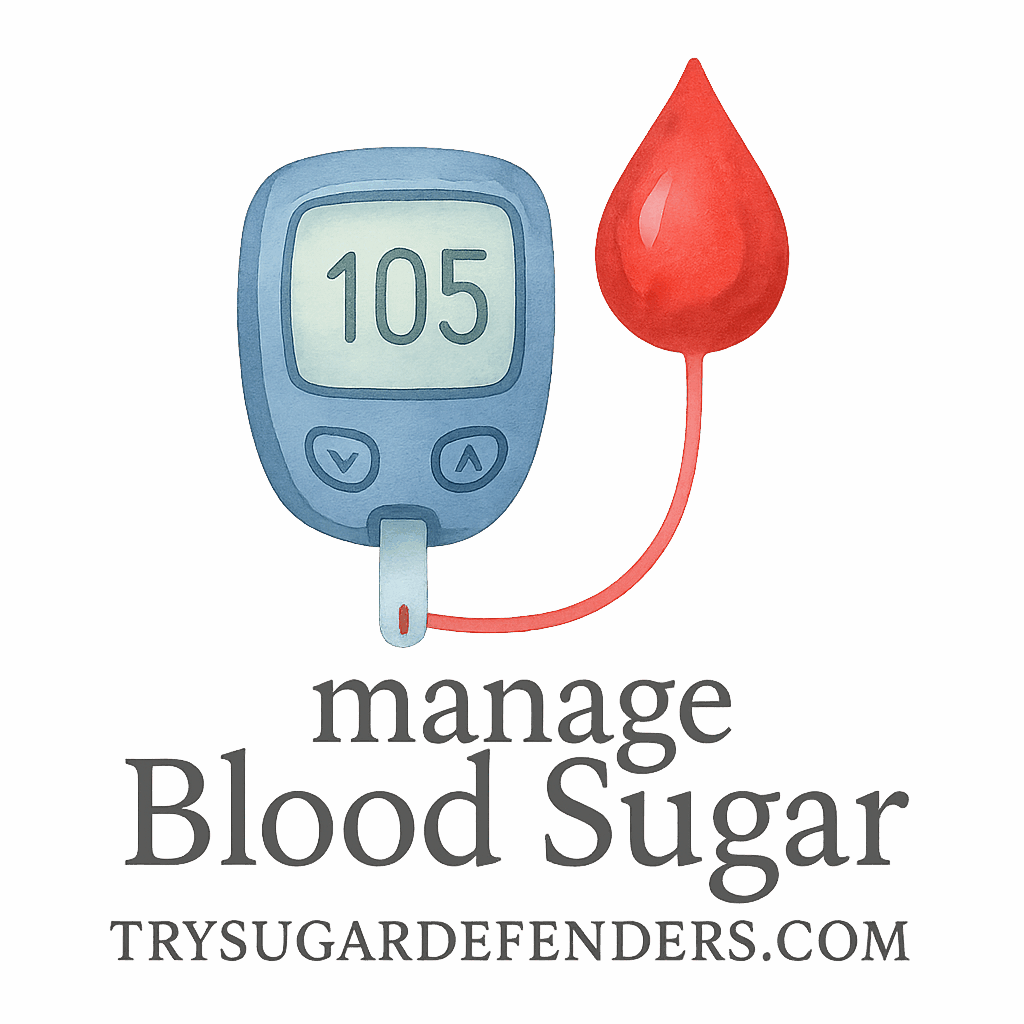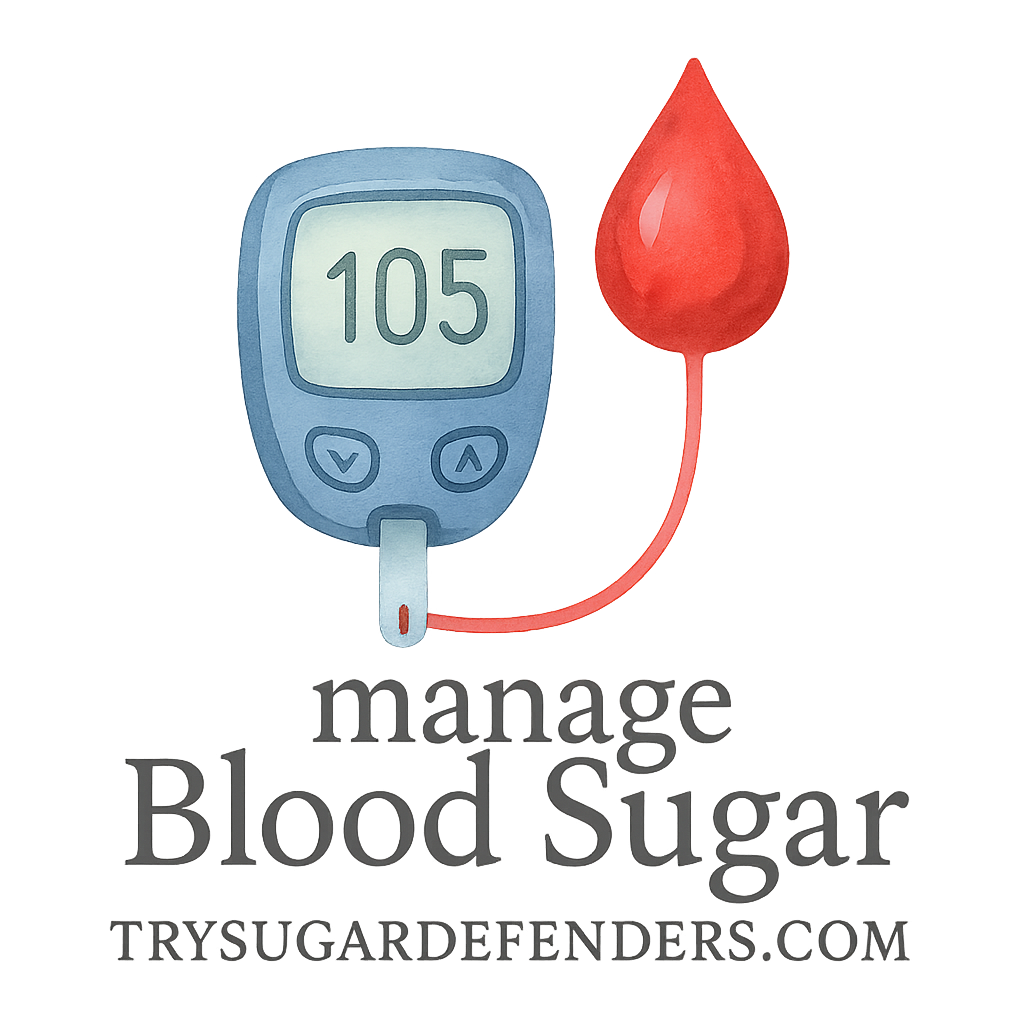Introduction
Managing blood sugar doesn’t always mean heading straight for prescription meds. Believe it or not, your local pharmacy or favorite online store has several over-the-counter (OTC) products that can lend a hand. Whether you’re prediabetic, diabetic, or just trying to keep your glucose in check, OTC supplements can make a noticeable difference when used properly.
Let’s dive into 8 OTC products that can support blood sugar management—and how they fit into a holistic plan that also includes diet, exercise, tracking, and smart strategies.
Why Blood Sugar Management Is So Important
The Hidden Dangers of Unstable Blood Sugar
Fluctuating blood sugar can quietly wreak havoc on your body. From fatigue and mood swings to long-term damage like nerve issues, heart disease, and kidney problems, poor control isn’t just about skipping dessert—it’s about your entire well-being.
Who Should Care About Blood Sugar Management?
It’s not just for people with diabetes. Many people with prediabetes, insulin resistance, or even normal blood sugar can benefit from better blood sugar control. It helps with energy, weight management, and even brain health.
Need help with lifestyle and mental strategies? Check out Behavioral & Mental Strategies to get started.
What Are OTC Products for Blood Sugar?
Are They Safe to Use Without a Prescription?
Most are derived from herbs, minerals, or vitamins and are generally recognized as safe when used as directed. That said, always chat with your doctor—especially if you’re already on medication.
Explore more on medical supplements and how they compare to prescriptions.
How Do OTC Products Help with Blood Sugar Control?
They can:
- Improve insulin sensitivity
- Slow down carbohydrate absorption
- Lower fasting glucose
- Reduce post-meal sugar spikes
Used alongside monitoring and lifestyle changes, they can work wonders. Don’t skip tools like monitoring & tracking devices to measure your progress.
1. Alpha Lipoic Acid (ALA) Supplements
How ALA Helps Balance Blood Sugar
ALA is an antioxidant that enhances insulin sensitivity and reduces oxidative stress—a major factor in insulin resistance.
Recommended Use and Side Effects
Start with 300–600 mg daily. Side effects are minimal but may include nausea or mild skin rash.
Explore the benefits of ALA as part of your overall blood sugar management toolkit.
2. Cinnamon Extract Capsules
The Science Behind Cinnamon and Blood Sugar
Cinnamon isn’t just for baking. Multiple studies show it helps lower fasting glucose by imitating insulin and improving its effectiveness.
Best Time to Take Cinnamon Supplements
With meals—especially ones with carbs. Go for Ceylon cinnamon if you can.
Browse more on diet strategies to pair with cinnamon for full effect.

3. Berberine Complex
A Natural Alternative to Metformin?
Berberine works similarly to metformin, helping reduce glucose production in the liver and improving insulin use. Some call it “nature’s metformin.”
Usage Tips and Safety Notes
Typical dosage is 500 mg, 2-3 times per day. Take it with meals to avoid GI upset.
Compare different supplements for blood sugar control.
4. Chromium Picolinate
Boosting Insulin Sensitivity with Chromium
Chromium is a trace mineral that improves the way your body handles insulin. It’s especially helpful for those with insulin resistance.
Combining Chromium with Diet
Take it with a low-carb or Mediterranean-style meal to maximize effectiveness. Learn more about Mediterranean plans and why they work.
5. Magnesium Glycinate
Magnesium’s Role in Blood Sugar Regulation
Magnesium deficiency is linked to poor insulin sensitivity. Glycinate form is gentle on the stomach and great for daily use.
Best Forms of Magnesium for Blood Sugar Support
Go with magnesium glycinate or magnesium citrate. Avoid oxide—it’s less absorbable.
Check out more on health and nutrition for long-term wellness.
6. Bitter Melon Capsules
How This Traditional Remedy Supports Glucose Levels
Used in Ayurvedic and Chinese medicine, bitter melon contains compounds that mimic insulin and reduce glucose absorption.
Should You Use Bitter Melon Long-Term?
Yes, but cycle it every few months. Like any supplement, balance is key.
More natural methods and strategies await if you’re open to herbal support.
7. Apple Cider Vinegar Gummies
Blood Sugar Benefits of Apple Cider Vinegar
ACV helps slow gastric emptying and blunt blood sugar spikes after meals.
Why Gummies Might Be Better Than Liquid
No nasty taste, easy to digest, and less risk to tooth enamel. Win-win.
Explore diet-related tips and how to build your best nutrition plan.
8. Fiber Supplements (Psyllium Husk)
Slowing Down Sugar Absorption Naturally
Fiber delays digestion and slows glucose absorption. Psyllium is especially effective when taken before meals.
When and How to Take Fiber for Blood Sugar
Mix with water 15 minutes before eating. Don’t forget to stay hydrated—it swells up like a sponge!
Check more tips on creating a realistic blood sugar control plan.
Building a Routine Around OTC Products
Incorporating These into a Daily Blood Sugar Plan
Start small. Pick one or two OTCs, track their impact, and adjust. Always use them alongside lifestyle efforts.
Need help building a routine? See the full guide on exercise & lifestyle and find a plan that fits you.
Don’t Forget Lifestyle, Diet, and Monitoring
OTC products aren’t magic. For real results, combine them with:
- A solid nutrition plan
- Regular exercise
- Tracking devices
- Routine doctor consultation
Conclusion
You don’t need a prescription to start managing your blood sugar. With the right over-the-counter tools, you can support your body’s natural balance, feel better day to day, and reduce long-term health risks. Combine these 8 OTC products with a smart lifestyle, regular tracking, and expert guidance—and you’ve got a winning formula.
Want a full blueprint? Start here: Sugar Defenders Guide
FAQs
1. Are OTC blood sugar supplements safe for long-term use?
Most are safe, but always consult your healthcare provider, especially if you’re on medications or have underlying conditions.
2. Can I take multiple OTC products together?
Yes, but start slow. Introduce one at a time and track results. Some combinations work better than others.
3. What’s the best OTC supplement for beginners?
Cinnamon or magnesium is a good place to start—they’re affordable, widely studied, and gentle on the system.
4. Do I still need to exercise if I take supplements?
Absolutely! Supplements support you, but exercise is essential for long-term blood sugar control. Check out fitness tips for ideas.
5. How long until I see results?
Typically 2–4 weeks. Be consistent, monitor regularly, and adjust as needed.
6. Can these supplements replace my medication?
Not without your doctor’s guidance. They can support your treatment, but shouldn’t replace prescribed drugs on your own.
7. Where can I learn more about building a sustainable plan?
Explore the full resource hub at Try Sugar Defenders to learn about plans, consultations, and holistic strategies.


